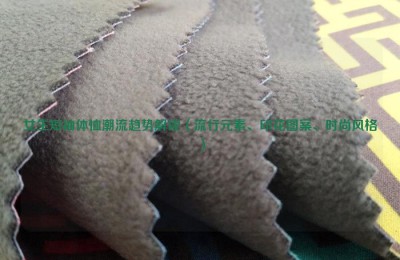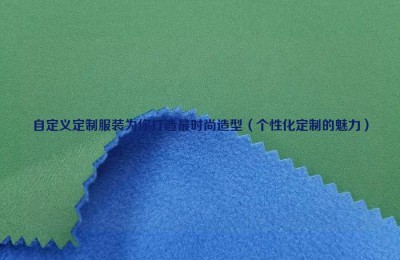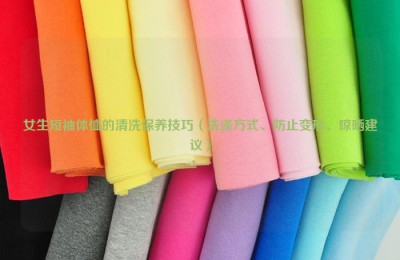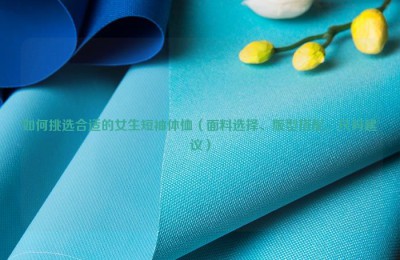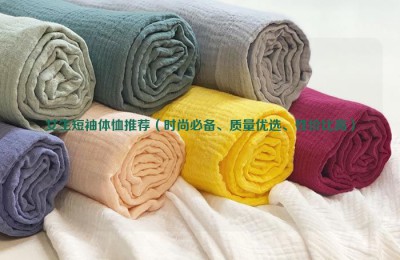In 2022, the Beijing Winter Olympics, which carries the expectation of mankind’s endless pursuit of excellence, is here.
From “Faster, Higher, Stronger” to “Faster, Higher, Stronger, More United”, the Olympic motto has never only been about sports, it is also a spiritual symbol of the development of human society. This change, just like the proposal of the Olympic motto more than a hundred years ago, is the product of a node in human civilization and is deeply rooted in the context of historical evolution.
On the occasion of the Beijing Winter Olympics, China Textile launched a special issue “300 million people go to the ice and snow, 1.4 billion people welcome the Winter Olympics”. The special issue focuses on the explanations of industry leaders on the economic opportunities of ice and snow, the insights of Winter Olympics clothing design masters, the brands that are determined to develop ice and snow sports products and sponsor the Olympic Games, as well as the professional athletes and enthusiasts who have the courage to challenge the limits and continuously improve their competition results. The true story tells the world the indissoluble bond between China’s textile industry and the Olympic Games in both Chinese and English.
Using the “cold resources” of ice and snow to make work and the textile “hot economy”
On the morning of October 20, 2021, as the first torch of the Beijing Winter Olympics was lit, the Winter Olympics officially entered Beijing time. For the 2022 Winter Olympics, the government has proposed to ultimately achieve the goal of attracting 300 million people to participate in ice and snow sports through government promotion, policy promotion, planning and instigation, publicity and agitation and other means.
The ice and snow economy has a long industrial chain, involving many fields such as tourism, equipment, catering, textiles and clothing. It is estimated that the ice and snow sports involved in the Winter Olympics will drive revenue from other related industries to more than 300 billion yuan. By 2025, the total scale of China’s ice and snow industry is expected to reach 1 trillion yuan. Such a huge market space has also opened up unlimited business opportunities for textile, clothing and related industries. As the “cold resources” of ice and snow begin to transform into a “hot economy”, how should the textile industry follow the trend? What deficiencies still exist that need to be improved? In order to find the answers to these questions, CHINA TEXTILE made a special trip to interview Sun Ruizhe, chairman of the International Federation of Textile Manufacturers (hereinafter referred to as the International Textile Federation) and president of the ChinaTextile Industry Federation.
Ice and snow sports bring huge opportunities
China Textile: The 2022 Winter Olympics is approaching, and the country has repeatedly proposed the vision of “driving 300 million people to go to the ice and snow.” What opportunities and challenges do you think this will bring to textile companies?
Sun Ruizhe: The successful bid for the 2022 Winter Olympics has ignited the Chinese people’s consumption boom in ice and snow sports. Coupled with the national policy dividend of “driving 300 million people to go to ice and snow” and the continuous investment of capital, my country’s ice and snow sports clothing and equipment enterprises are facing huge development opportunities. mainly reflects in:
First, there are huge opportunities for scale development. The “Ice and Snow Sports Development Plan (2016-2025)” points out that by 2020, the total scale of my country’s ice and snow industry will reach 600 billion yuan, and by 2025, the total scale of my country’s ice and snow industry will reach 1,000 billion yuan. According to the “China Ice and Snow Tourism Development Report (2021)”, it is expected that in the 2020-2021 ice and snow season, the number of ice and snow leisure tourists in China will reach 230 million, and the ice and snow leisure tourism revenue will exceed 390 billion yuan. The Data Center of the Ministry of Culture and Tourism predicts that China’s ice and snow tourism will drive the output value of ice and snow characteristic towns, ice and snow cultural and creative industries, ice and snow sports, ice and snow manufacturing, ice and snow resort real estate, ice and snow exhibitions and other related industries to reach 2.92 trillion yuan during the 2021-2022 ice and snow season.
Second, there are huge opportunities for policy dividends. In recent years, our country has successively issued the “Ice and Snow Sports Development Plan (2018-2022)”, the “Ice and Snow Tourism Development Action Plan (2021-2023)”, and the “Ice and Snow Sports Development Plan (2016-2025)”. , “Opinions on Vigorously Developing Ice and Snow Sports by Taking the 2022 Beijing Winter Olympics as an Opportunity” and other policy documents. The intensive release of policy dividends will effectively promote the vigorous development of the ice and snow industry. The industrial scale will be significantly expanded, the structure will be continuously optimized, and the industrial chain will become increasingly complete. Through the implementation of the brand strategy, we will promote the establishment of a number of large-scale ice and snow industry clusters, develop a number of ice and snow industry enterprises with high visibility, influence and strong market competitiveness, and build a number of composite ice and snow tourism bases and Ice and Snow Sports Center. All these will provide solid policy support for my country’s ice and snow sportswear and equipment enterprises to grow bigger and stronger.
Third, there are huge opportunities for technological empowerment. On the one hand, technological means such as artificial intelligence, big data, and wearable devices have become “standard equipment” to assist athletes in improving their competitive levels during training. Smart wearable devices will help build a human kinematics and kinetic parameter measurement and analysis system to retrieve, collect, screen, and analyze a series of previously difficult-to-quantify data such as athletes’ speed, heart rate, breathing, and force exertion methods. . On the other hand, with the combination of 5G technology, artificial intelligence, big data, blockchain, cloud computing and other emerging digital industries with the ice and snow industry, “simulated ice and snow”, “VR technology”, “IntelligenceHuman-computer interaction” and many other new models and new formats of ice and snow sports, as well as new trends in the intelligent development of the ice and snow industry such as “smart ice and snow products”, “smart ice and snow services”, “digital operation of ice and snow venues”, will Effectively breaking through the current domestic ice and snow sports restrictions that only operate in winter, and conforming to the sports development trend of “Northern Ice Expanding to the South, Expanding to the West and Moving to the East”,To meet the consumer demand for modernization and quality.
The second is the sudden rise of domestic independent brands. With the overall increase in the competitiveness of my country’s ice and snow sports, the continuous breakthroughs in the scale of the ice and snow market, and the gradual popularization of ice and snow culture, domestic brands are constantly rising in the field of professional competitive sports and mass leisure consumption. Head brands are expected to grow and gradually form With a development pattern driven by technology, better structure, more complete industrial chain, and stronger brand influence, the growth of market scale goes hand in hand with the development of highqualityin the industry.
According to the “2020 Winter New Vibrant Lifestyle Trend Report” released by CBNData and Tmall Sports, domestic emerging clothing brands such as Nan’en, VECTOR, and Nobaday collectively entered the “Top Ten Favorite Ice and Snow Brands in the Z Era” in December 2020. Sales of ski equipment have increased 13 times year-on-year; according to Tianyancha data, the number of registered companies with “skiing” business scope has increased significantly since 2015. In 2019, the number of registered companies exceeded 1,000, and currently the total number exceeds 6,400. As a niche market for ski equipment, there are more than 40 related companies.
Third, R&D collaboration in the upstream and downstream of the industrial chain is accelerating. Textilenew material innovation, including new fiber materials, new nonwoven materials, smart textile materials and ecological dyeing and finishing materials, is the key to the high-quality development of the ice and snow sportswear equipment industry link. The current development and quality improvement of functional fiber materials, the industrialization of bio-based chemical fibers, and the industrialization of high-performance fibers will provide powerful development opportunities for the high-quality development of the ice and snow sportswear and equipment industry in the future. Taking the “Winter Olympics Economy” as an example, the upstream fabric companies of the textile and apparel industry chain, through the research and development collaboration of new materials, new processes and new designs, provide products for downstream brand companies. Quality innovation and function optimization provide strong support.
For example, Shanghai Jialinjie Textile Co., Ltd. signed a supply agreement with Anta, the official partner of the Beijing Winter Olympics Organizing Committee, to strengthen its super-warm fleece products to meet the needs of various working scenes in the Winter Olympics; also as a Winter Olympics Shaoxing Qianyong Textile Co., Ltd., a supplier of uniform fabrics, relies on its unique nylon printing technology and craftsmanship to restore the unique colors of the design, directional development of nano-inks, and provide solid technical support for fashion aesthetics; Jiangsu Sanfeng Special Materials Technology Co., Ltd. Based on market demand, the company develops peptide muscle foam (NuSkin) synthetic fabrics, which are environmentally friendly and suitable for use in jackets and down jackets; Suzhou Xingfengqiang Textile Technology Co., Ltd.’s flagship series of sub-zero velvet-free products reduces the waste generated by manufacturing down. The discharge of waste gas and waste water is more energy-saving and carbon-reducing. It is foreseeable that the effect of accelerating R&D synergy between the upstream and downstream of the industrial chain will help China’s ice and snow sportswear and equipment industry build more professional, efficient and difficult-to-subvert technical barriers, and effectively participate in global market competition.
Message to the Winter Olympics
China Textile: The Beijing Winter Olympics will open on February 4, 2022. What are your wishes for the 2022 Winter Olympics?
Sun Ruizhe: The Winter Olympics is the most vivid practice that shows mankind’s pursuit of dreams and snow, strength and beauty, skills and art, kindness and ambition. From “faster, higher, stronger” to “faster, higher, stronger and more united”, the Olympic spirit, with a voice more suitable for the times, breaks through time and space and becomes a powerful force in building a community with a shared future for mankind.
In 2022, with the beautiful vision of “pure ice and snow, passionate date”, the Winter Olympics will soon kick off in Beijing, and the holy Olympic spirit and the ancient land of China will once again be intertwined. I believe that in the light of the great Olympic spirit, as a powerful creator that meets the people’s new expectations for a better life, and as a promising pioneer that jointly responds to the challenges of global uncertainty, the Chinese textile industry will surely usher in a new ideal. realm, playing a new chapter of development and building a new fashion civilization.
AAAFGHTYHCGER

